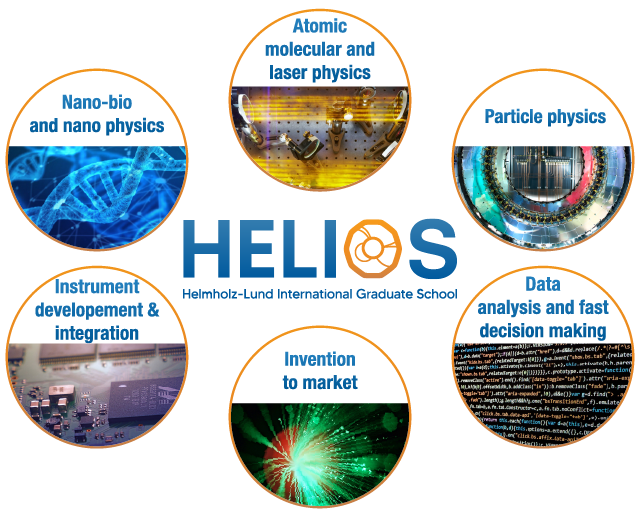Francesca Calegari is German co-spokesperson of the HELIOS international graduate school
Francesca Calegari is German co-spokesperson of the new “Helmholtz-Lund International Graduate School” (HELIOS).
The new “Helmholtz-Lund International Graduate School” (HELIOS) is intended to create educational opportunities for doctoral students in Hamburg and Lund to prepare them for a new age in the study of matter on different time and length scales. The rapidly increasing amounts of data and increasingly complex instruments that are emerging in this research, but also in other natural sciences, require new approaches in instrumentation, data acquisition and analysis. HELIOS is designed to prepare young students to handle these challenging tasks and to develop new methods.
The graduate school combines the expertise of DESY, the University of Lund (Sweden) and the University of Hamburg. DESY Director Helmut Dosch says: “With HELIOS we are taking a first step towards a larger structural cooperation with Lund, which like Hamburg has strong university and non-university research institutions with large-scale facilities. Together, we want to prepare our young scientists well to master the increasing complexity of our highly technical experiments and the rapid growth in data volume, and to develop innovative methods of data acquisition and analysis – including artificial intelligence.”
Doctoral students at both locations are to be given the skills needed to plan, conduct and evaluate complex research experiments. The basis is an interdisciplinary approach, which brings together different scientific fields such as molecular physics, particle physics, nanoscience and research with photons. “The graduate students at HELIOS are individually supervised by a three-person German-Swedish team from each of the participating institutions,” explains Francesca Calegari (DESY and Univ. of Hamburg), German co-spokesperson of the graduate school. “In addition to financing her research projects, they can expect, among other things, an extensive qualification program as well as a stay of at least three months in the respective partner country.”

HELIOS will run for a total of 22 doctoral positions over two three-year periods. The international school is funded by the three partner institutions as well as by the Helmholtz Association of German Research Centres and the Hamburg Ministry of Science, Research and Equalities (BWFG) with a total of approximately 8 million euros. The cooperation project is also intended to further advance the scientific cooperation between Hamburg and Lund as a whole. This news has been highlighted on the websites of DESY, CFEL and the city of Hamburg.